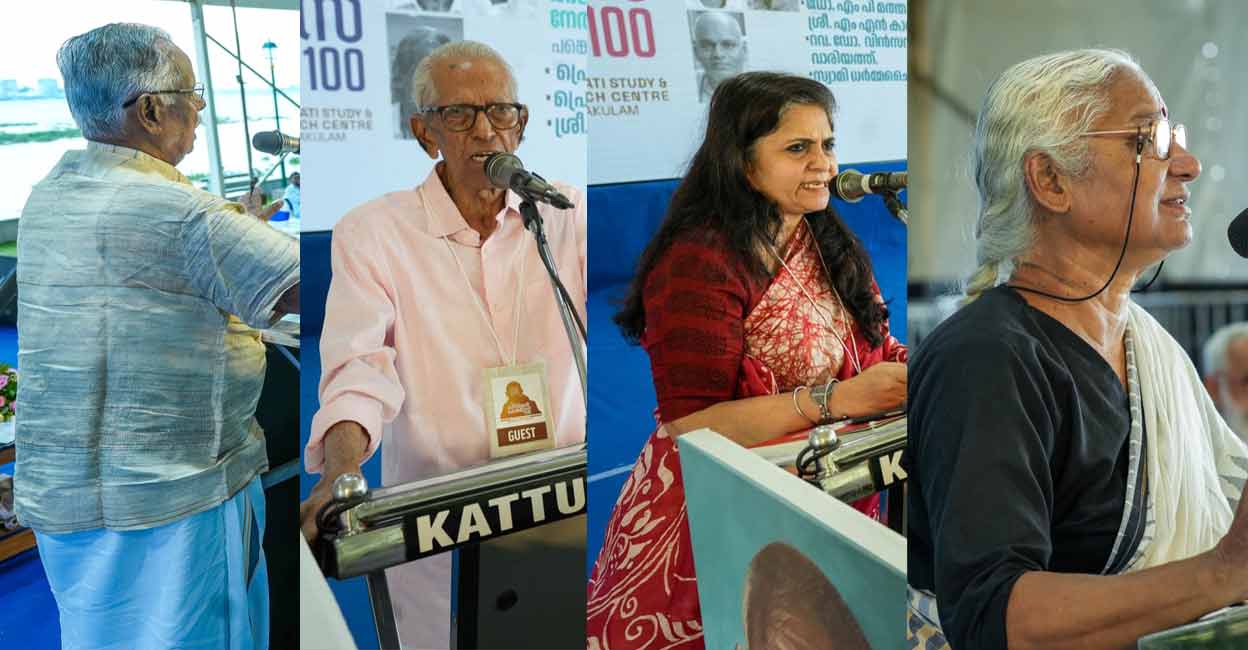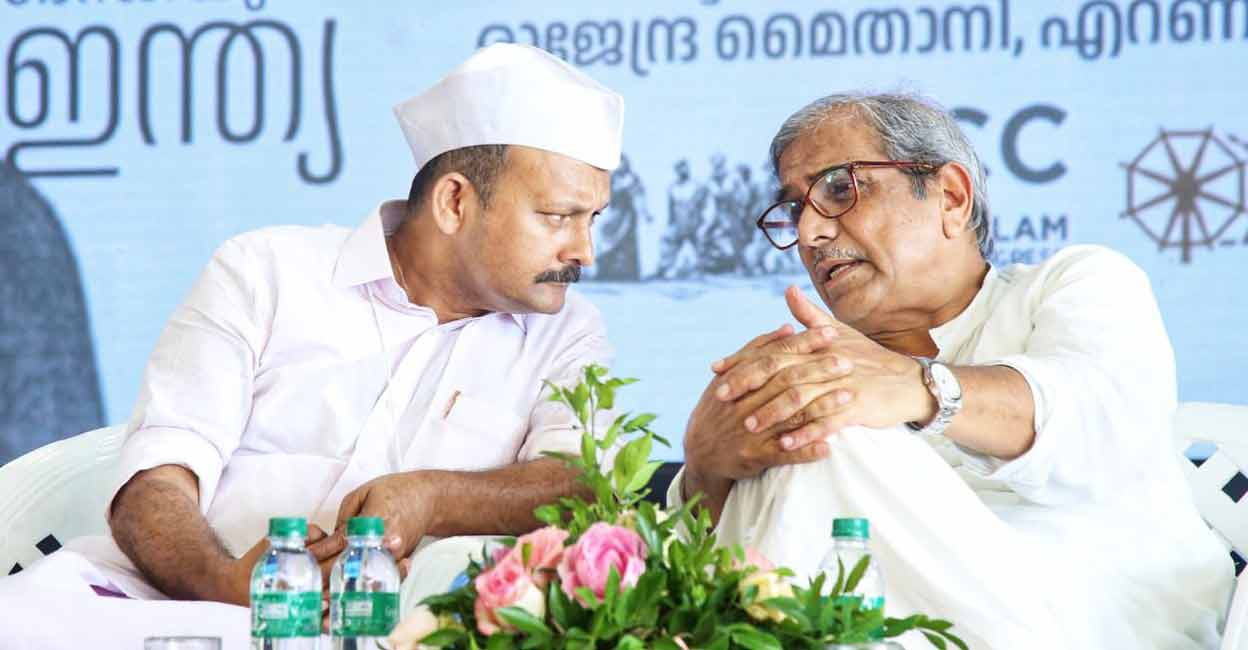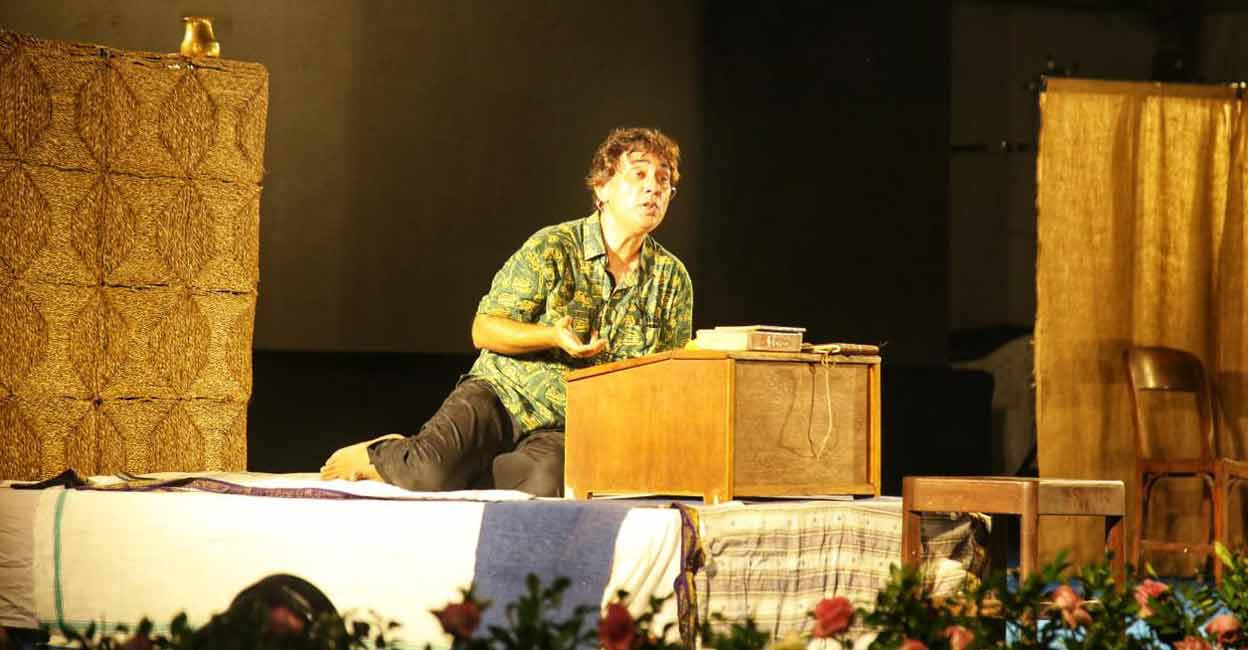Gandhi, the idea, comes alive in Kochi as Congress celebrates 100th year of the Mahatma as its president

Mail This Article
Kochi: Amid allegations of politically motivated attempts to erase the relevance of Mahatma Gandhi from the socio-political fabric of the nation, Kerala's Kochi city witnessed a powerful tribute to the father of the nation this week.
Myriad aspects of Gandhian thought and politics came to the focus once again as public intellectuals and activists from different parts of the state converged at Kochi to celebrate the centenary of Gandhi becoming the president of the Indian National Congress.
The six-day event (Oct 12-17), organised by the District Congress Committee (DCC), Ernakulam, and the Sabarmati Study and Research Centre run by the party, saw thought-provoking discussions, seminars, book fair, exhibitions and film screenings that shed light to the politics and philosophy of the Mahatma.

Those who addressed the event on different days included environemental activist Medha Patkar, writer T Padmanabhan, documentary maker Anand Patvardhan, activist Teesta Sethalvad and economist Sudarshan Iyengar.
Iyengar, a former vice chancellor of the Gujarat Vidyapith, a deemed university founded by Gandhi in 1920, said 'charkha' (spinning wheel) is the basis of Gandhian economics. "Charkha paved the way for a revolution in the nation's economy. It was Gandhi who made such a revolution possible. A nation with a strong and stable economy was his dream," Iyengar said, speaking at a seminar as part of the event.
Dr K Venu, addressing another session, said that the lone way to eradicate what he called the 'polluted' thoughts of the Sangh Parivar is the value-based politics upheld by Gandhi. Writer N E Sudheer echoed Venu's concerns, saying that communalism is the name of the ideology that killed Gandhi. "(PM) Modi embraces Gandhi only because of the thought that he becomes stronger when he gets the most powerful ruler on his side," Sudheer said.
Human rights activist Teesta Sethalvad called upon the nation to move forward following the Gandhian ideals. She was addressing a session on 'the spirituality of Gandhian politics'. "Hindutva is not same as Hinduism. We should not forget that Gandhi was shot down with the bullets of Hindutva," she said.

Activist and Gandhi's great grandson Tushar Gandhi credited the Mahatma with the transformation of the Congress. "It was Gandhi who transformed Congress from being a mere debate club into the hope of a people who craved freedom," he said.
"Gandhi came to the forefront of the Congress after understanding the famine, poverty and illiteracy that prevailed in lakhs of Indian villages. Gandhi brought to Congress two visible changes. They are khadi clothes and the Gandhi cap.

"It was a step towards making uniformity above diversity. Afterwards, the two symbolise credibility and honesty. Gandhi aimed to make Congress a movement with a firm ideological base rather than a political front," he said.
Veteran Malayalam writer T Padmanabhan said Gandhi's life was showing the way for the nation. "The rulers who hail Gandhi during foreign trips try to make a Gandhi-mukt Bharat when they return to India. There are some strong attempts to even erase Gandhi's memories. However, Gandhi as an idea will survive all such attempts as long as the country is there," Padmanabhan said.
Anand Patvardhan's documentary 'The World is Family', which features a period in India's freedom struggle through the life of his parents and uncles, was screened at the event. Steve York's 'A Force More Powerful: A Century of Non-violent Conflict', 'Mahatma Gandhi: Dying for Freedom' and Anand Ramayya's 'Who Killed Gandhi' were also screened.
The highlight of the event's final day was a performance of the play 'Mahadev Bhai (1892-1942). The play, based on the diary of Mahatma Gandhi's secretary, Mahadev Desai, was directed by Ramu Ramanathan and performed by Jaimini Pathak.
Prof M K Sanoo, N S Madhavan, Dr P K Abdul Azees, Dr Selvi Xavier, Dr Sebastian Paul, Prof K Aravindakshan, Rammohan Paliyath, Dr M P Mathayi, Dr M C Dileepkumar, Dr T S Joy, Dr Jinto John, Dr Cyriac Thomas, Tenzin Tsundue, Congress state chief K Sudhakaran, AICC general secretaries K C Venugopal and Deepa Das Munshi, Leader of the Opposition V D Satheesan and Congress MPs and MLAs addressed the event. DCC president Muhammed Shiyas was the chief organiser of the event, which had T J Vinod MLA as its general convenor.

